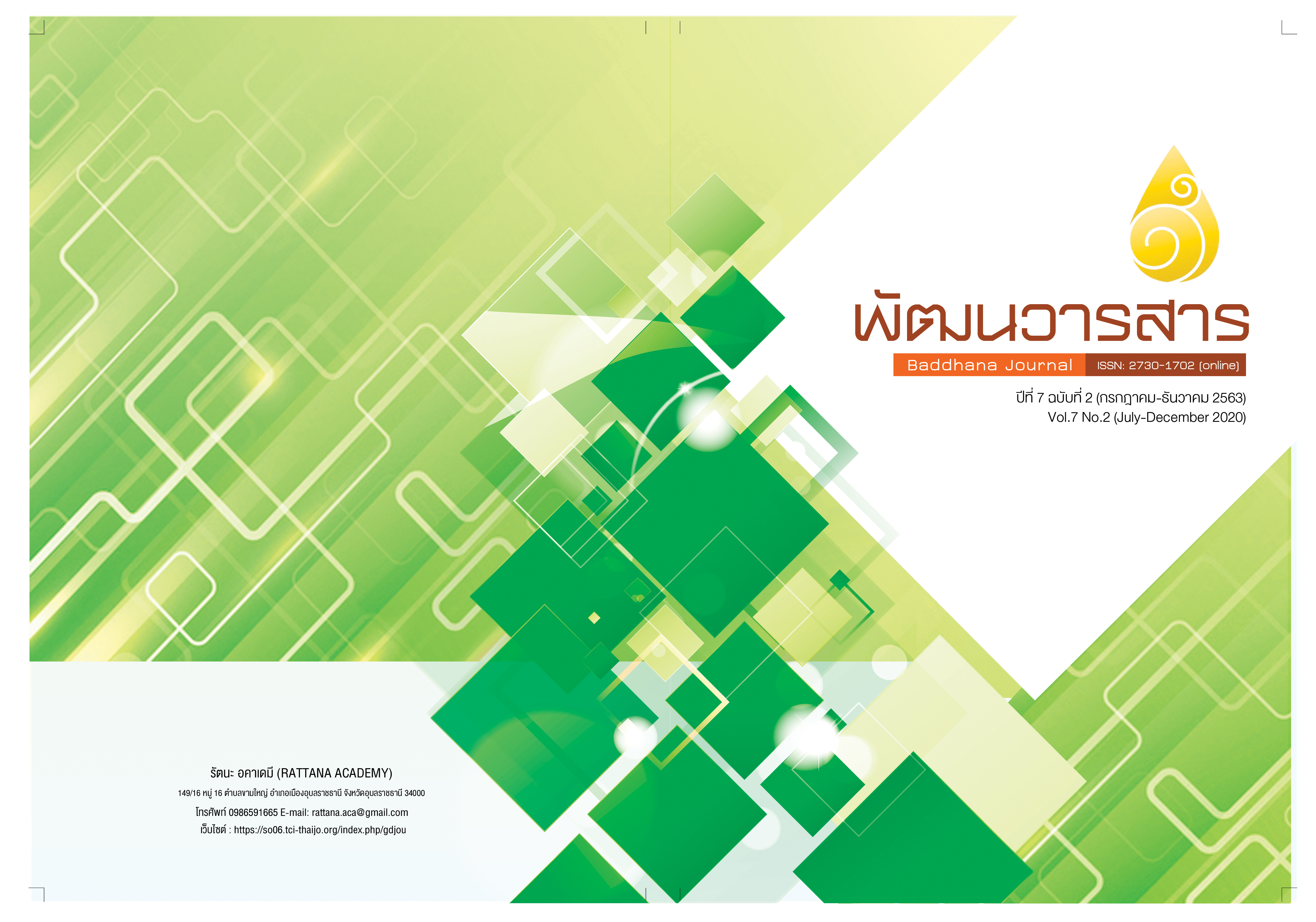Policy implementation to reintegrate inmates back to society in prison in the Eastern area
Main Article Content
Abstract
The objective of the study is to examine the outcome of policy on returning good people into society in eastern reginal prisons, study the success factors in implementation of policy on returning good people into society in eastern reginal prisons, find out the problems and obstacles in implementation of policy on returning good people into society in eastern reginal prisons, as well as study guidelines for effective implementation of policy on returning good people into society in eastern reginal prisons of the Department of Corrections. This is a qualitative research. The study was carried out by interview with 33 key informants. Content analysis was employed to present results. It found that eastern regional prisons were successful in implementation of policy on returning good people into society. The success factors consisted of 1) resources 2) preparation for the inmates before release 3) opportunities from society 4) economic conditions, social condition, political condition 5) communication between organizations 6) cooperation 7) standards and objectives and 8) features of organization. Nonetheless, the problems and obstacles also were found that comprised of 1) resource in prison 2) inmates 3) professional training 4) society 5) location of prison and 6) regulations and law. Four ways in effective implementation of policy on returning good people into society by the Department of Corrections contained 1) an integrated approach for coordination between the Department of Corrections and all sectors of society 2) guidelines for raising awareness in inmates while imprisonment 3) guidelines for promoting welfare in encouragement of correctional staffs 4) guidelines for updating law and regulations.
Article Details
References
พีรญา ทับคง. (2553). ปัจจัยในการพัฒนาพฤตินิสัยผู้ต้องขังของเรือนจำกลางเพชรบุรี. (วิทยานิพนธ์ศิลป ศาสตรมหาบัณฑิต สาขาวิชาการบริหารและพัฒนาประชาสังคมเมืองและชนบท คณะมนุษยศาสตร์และสังคมศาสตร์ มหาวิทยาลัยราชภัฎเพชรบุรี).
เพลินใจ แต้เกษม และคณะ. (2552). พันธมิตรภาคประชาสังคมกับการปลดปล่อยให้ผู้ต้องขังกลับคืนสู่สังคม.
รายงานการวิจัย กรมราชทัณฑ์.
เพลินใจ แต้เกษม และคณะ. (2555). การพัฒนารูปแบบและกระบวนการพัฒนาพฤตินิสัยด้านการฝึกวิชาชีพ
ผู้ต้องขังของกรมราชทัณฑ์. รายงานการวิจัย กรมราชทัณฑ์.
ยศพนต์ สุธรรม. (2561). รูปแบบการมีส่วนร่วมเพื่อคืนคนดีสู่สังคมระหว่างศูนย์ยุติธรรมชุมชนและเรือนจำ
กลางฉะเชิงเทรา. (วิทยานิพนธ์ปรัชญาดุษฎีบัณฑิต สาขาวิชาการจัดการเพื่อการพัฒนา
มหาวิทยาลัยราชภัฎราชนครินทร์).
ยุทธภูมิ จิตภักดี. (2553). การนำนโยบายการป้องกันและปราบปรามยาเสพติดไปปฏิบัติ : ศึกษากรณีเรือนจำ
กลางคลองเปรม. (วิทยานิพนธ์รัฐประศาสนศาสตรมหาบัณฑิต มหาวิทยาลัยรามคำแหง).
เรือนจำกลางฉะเชิงเทรา. (2562). การตรวจรับการประเมินรางวัลเลิศรัฐ. (ออนไลน์) (อ้างเมื่อ 1 สิงหาคม 2562). จากhttps://www.msschachoengsao.com/detail.php?id=7516.
ศรีสมบัติ โชคประจักษ์ชัดและทองใหญ่ อัยยะวรากูล. (2558). แนวทางการพัฒนาพฤตินิสัยผู้กระทำผิดของ
ประเทศไทย. วารสารกระบวนการยุติธรรม, 8(3), 89-113.
สำนักงานคณะกรรมการพัฒนาการเศรษฐกิจและสังคมแห่งชาติ. (2562). แผนพัฒนาภาคตะวันออก
พ.ศ.2560-2565 ฉบับทบทวน. (ออนไลน์) (อ้างเมื่อ 1 สิงหาคม 2562). จาก
https://www.nesdc.go.th/ewt_dl_link.php?nid=9844&filename=index
สำนักงานคณะกรรมการพัฒนาระบบราชการ. (2561). รางวัลเลิศรัฐ สาขาการบริหารราชการแบบมีส่วนร่วม
ประจำปี 2561. (ออนไลน์) (อ้างเมื่อ 1 สิงหาคม 2562). จาก
https://opdc.go.th/content/MjczMw


